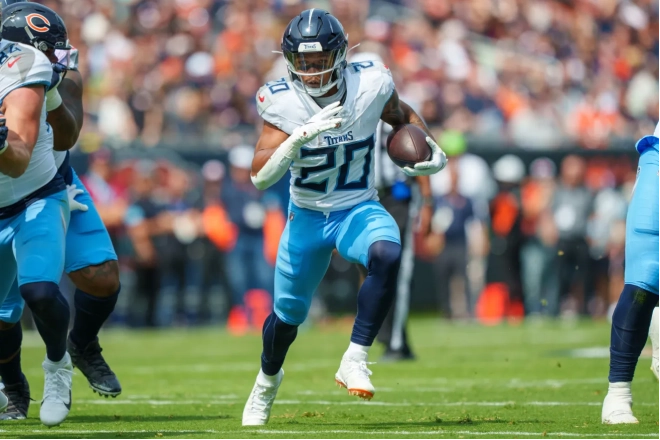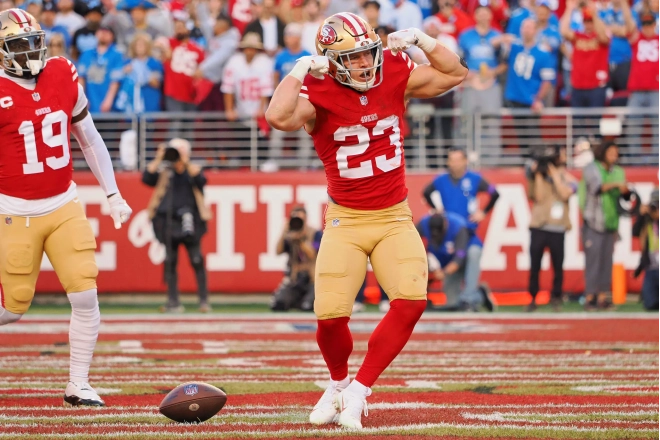Foreword by ASL Founder, Leonard LaPadula
I greatly enjoy playing fantasy football. It is a challenging game of skill, and I enjoy the competitive and social aspects of it. My leagues are money leagues, but the total money involved is only enough to add to the excitement and keep the motivation up to win. It's not enough that it will have any substantial impact on my life, win or lose. The weekly wins and losses in season-long fantasy sports are exciting, but from a financial perspective, there is only one win or lose per year.
I am not into sports betting, and nor will I directly promote it from ASL's website. This is because sports betting is an individual sport of which the primary focus is to quickly make a large sum of money from a small sum of money. I believe, if played responsibly, sports betting can be fun and played for entertainment purposes, for example to add to the excitement of watching the game.
However, for many, it becomes an addiction and the losses, which are more common than gains, cut into the necessary funds the bettor needs for them or their family to live. It can become destructive.
Therefore, I thought the following is a good read for our subscribers to identify healthy and destructive patterns for playing fantasy sports and/or sports betting.
Behavioral Trends Among Fantasy Sports Users Who Transition to Sports Betting in the NFL
Data highlights specific behavioral trends among fantasy sports users transitioning to sports betting in the NFL. Approximately 24.6% of fantasy football players experience mild depression due to the game's competitive and financial aspects. High engagement levels correlate with increased anxiety, stress, and mood fluctuations. This emotional impact often extends into sports betting, where financial stakes heighten these issues. Notably, those deeply engaged in fantasy football exhibit higher stress and anxiety levels due to their time and financial investments.
Additionally, users invest heavily in their teams' performances, frequently comparing their results with others. This behavior increases their likelihood of venturing into sports betting, driven by their heightened interest and emotional investment. The unpredictability of NFL outcomes and potential financial losses further exacerbate stress levels and mental health issues.
Marketing Strategies and User Transition
Targeted marketing strategies influence the transition from fantasy sports to sports betting. Companies such as DraftKings employ promotional campaigns tailored to appeal to fantasy sports users. These campaigns capitalize on the skills and knowledge developed in fantasy sports, suggesting an advantage in sports betting. Analysis of advertising effectiveness indicates that promotional strategies focusing on financial incentives, such as a DraftKings promo code, effectively motivate fantasy sports players to explore sports betting. This transition is facilitated by familiar interfaces and analytical tools that fantasy sports users are already accustomed to, enhancing their comfort and confidence in sports betting platforms.
Demographic Insights and Behavioral Data
According to the Fantasy Sports & Gaming Association, fantasy sports, especially fantasy football, attract a predominantly male demographic with an average age of around 34 years. This demographic data reveals that many players, particularly those with financial involvement, are more likely to transition to sports betting. Social and competitive elements in fantasy sports often drive players to seek greater and higher stakes through sports betting.
Insights also emerge from longitudinal studies on fantasy sports players. These studies indicate a trend of increasing participation over time among the most active users. As engagement deepens, the likelihood of transitioning to sports betting grows, driven by the desire to leverage their accumulated knowledge and competitive drive.
Mental Health Effects of NFL Sports Betting Transition
Fantasy sports engagement and subsequent sports betting involvement have notable mental health implications. Many fantasy football players report experiencing symptoms of anxiety, mood swings, irritability, guilt, and loneliness. These symptoms often intensify when transitioning to sports betting, where the emotional and financial stakes are higher.
High engagement in fantasy sports contributes to the development of problematic behaviors. Players often become preoccupied with the game, allowing it to interfere with other life aspects such as work, relationships, and daily activities. The transition to sports betting compounds these issues, amplifying the emotional and psychological impact.
Financial and Social Dynamics
Financial involvement in fantasy sports affects mental health. Players investing money in fantasy leagues report heightened stress and anxiety levels, exacerbated by the unpredictable nature of NFL performances and potential financial losses. Positive emotions such as joy when teams perform well are also reported, but these moments are often fleeting and overshadowed by the stress of financial risk.
The social and interactive aspects of fantasy sports, particularly fantasy football, contribute to the competitive pressure experienced by players. Competing against friends and league members heightens the stakes, driving some players to consider sports betting as a way to enhance the potential rewards. However, this also introduces additional stress and potential for negative mental health outcomes.
Regulatory Considerations and Longitudinal Trends
The overlap of fantasy sports and sports betting raises regulatory questions, particularly as more states legalize sports betting. Understanding the relationship between fantasy sports participation and sports betting is important for establishing clear guidelines. Studies suggest that fantasy sports can serve as a gateway to sports betting, highlighting the need for regulatory oversight to mitigate potential risks.
Longitudinal data reveals that highly active fantasy sports players tend to increase their participation over time. This sustained engagement, while potentially enhancing enjoyment and social connections, also poses risks of addiction and mental health issues. Understanding these trends is essential for developing strategies to support healthy and balanced participation in fantasy sports and sports betting.
Positive and Negative Experiences
Participation in fantasy sports offers both positive and negative experiences. Players often report enhanced social connections, increased enjoyment of NFL games, and a sense of community and competition. However, these positive experiences can be offset by the mental health challenges associated with high engagement levels and the transition to sports betting. Maintaining a balance between participation in these activities and other life aspects is important for overall well-being.
Motivational Factors and Health Implications
The motivations behind fantasy sports participation vary and influence user behavior. Factors such as social interaction, competition, and entertainment drive engagement levels. The Fantasy Sport Motivation Inventory (FanSMI) identifies these motivations, highlighting their impact on the depth of involvement and potential for problematic behaviors.
Physical health implications of excessive fantasy sports engagement include symptoms such as headaches, insomnia, and weight fluctuations. These symptoms often result from heightened stress levels and the impact of financial and emotional stakes. Achieving a balanced approach to participation can help mitigate these health risks and promote overall well-being.
Conclusion
As fantasy sports users increasingly transition to sports betting, understanding the behavioral, emotional, and financial impacts becomes crucial. Fantasy sports can enhance enjoyment of NFL games and foster social connections, but the transition to sports betting introduces significant mental health risks. The combined effects of financial stress, competitive pressures, and emotional investment highlight the need for users to maintain balance. Additionally, regulatory bodies must provide oversight to mitigate these risks while preserving the entertainment value of these activities. A healthy balance between fantasy sports participation and responsible betting is essential for safeguarding mental and physical health.





